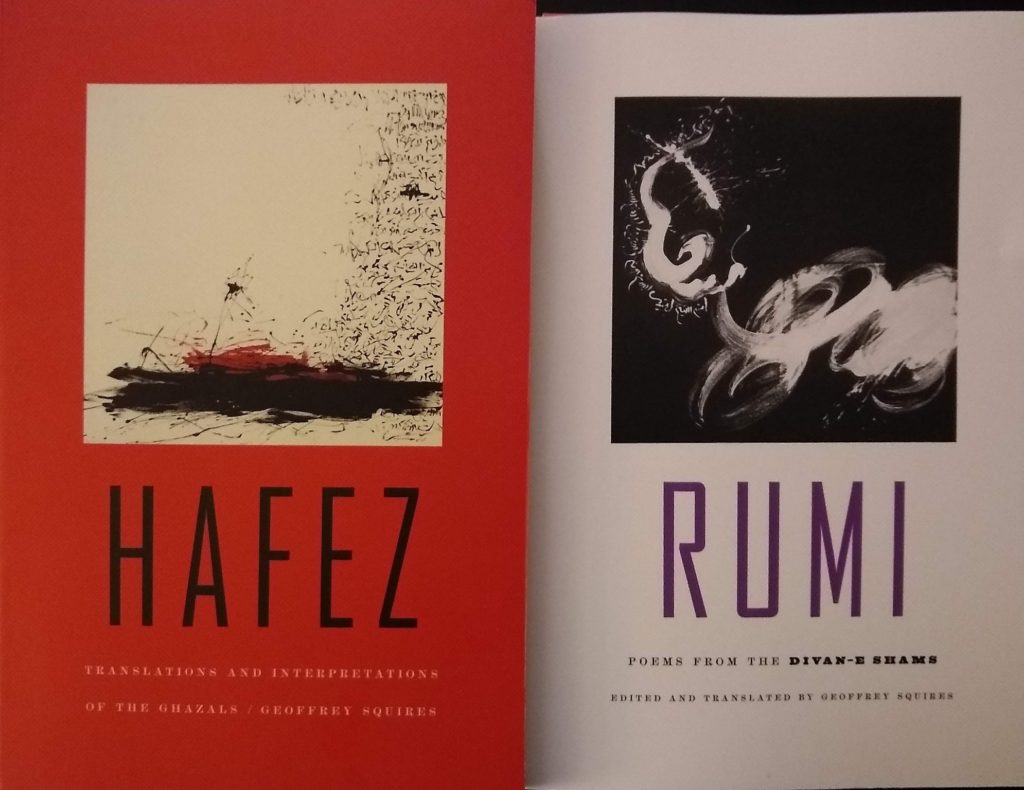You know how there are certain ways in which each of us is That Bitch, and some of those things come up all the time, like how I can’t go for two minutes without talking about cheese fries? And then with others of those things, you are definitely still That Bitch and it’s not like you’re in the closet about it, but time is going by and it hasn’t happened to come up, and then all of a sudden it’s Oscar Wilde’s birthday and you are on Twitter vomiting up every fact you ever learned about him because you never stopped being That Bitch, not even slightly.
Well, one of my things is that I love Persia. I want to go to Iran in the worst way. And for a little while in the late aughts, I happened to pick up (what I thought was) Rumi and fell in love. Except there was a catch! The “translations” of Rumi that you typically see in the bookstores aren’t translations at all. It makes sense that you would think they are! Given that the covers say “translated by Coleman Barks.” But nope! I can’t exactly call it a hoax because if you inspect the book more closely, you can see that translation is not involved, but it’s at least very misleading. Coleman Barks, it turns out, doesn’t know Persian. He reads a bunch of existing translations of Rumi and makes them all poetical or something, and those are the most prominent editions of Rumi that exist. It’s fine. I’m furious about it. It’s fine.
Anyway, so Miami University Press just released this new translation of Rumi, by Geoffrey Squires, and I picked it up along with the same translator’s edition of Hafez, and BOY was that a great decision.

Hafez and Rumi are extraordinary lights of Persian literature, and my favorite, favorite thing is this trope that like, everyone who speaks Persian owns the Qur’an and a book of Hafez (and probs of Rumi also). I have no idea if it’s true, but it’s a trope that has come up in a lot of books I’ve read by Iranian authors, that if a Persian speaker has no other books they still have the Qur’an and the Divan. And I just find it very beautiful and moving that these medieval poets remaining so necessary and intrinsic to people’s lives. I want in on that, you know? I want to need a book that way.
Squires has worked hard to make the books accessible to the layperson, which means that you can basically open the books to any page and get your socks knocked off. For the purposes of illustration, I am going to do that precise thing, one from each book, and we can see the results together. Here’s a random page from the Hafez!
O you whose bright cheeks
gladden the garden of our lives
come back
for without the rose-bloom of your face
we shall come to the end
of the spring-time of beingif my tears fall like rain it is only right
for because of the grief you cause me
my existence is nothing but a flash of lightning
PS another way in which I am That Bitch is that I read that second stanza and immediately thought of this moment from The Untamed. THIS IS WHO I FUNDAMENTALLY AM AS A PERSON.

Anyway, that was a great and very successful Hafez experiment. Let’s do Rumi now. Here’s a random page of Rumi!
Last night I renewed my vow
I swore an oath by your soul
that I would not take my eyes off your face
that even if you struck me with your blade
I would not turn awaythat I would seek no succour from another
since in separation from you lies my pain
and if I let out a cry
when you cast me into the fire
I would not be a real manI rose from your path like dust
and to dust will return again
A of all, that’s so gorgeous I am in physical pain from it. Secondly, this truly is a random page. I did not pick this on purpose to prove the emerging thesis of this post, which is that medieval Persian poetry is all just about The Untamed. However, it is also true that this is a moment that happens in The Untamed:

Primary season has been killer, and this weekend we had to spring forward, which blows. But if you need a pick-me-up, and your usual self-care strategies aren’t doing it for you, you should consider the Geoffrey Squires translations of medieval Persian poets Rumi and Hafez. Humans are not always garbage and sometimes we make things of such aching beauty that they endure for eight hundred goddamn years, and that’s these poems.